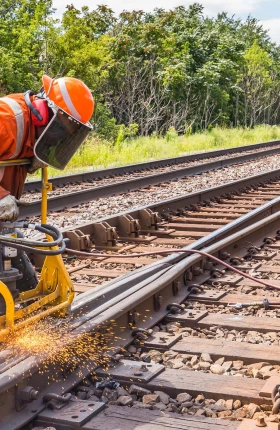By embracing a strategic approach that integrates planning, foundational practices, and advanced digital tools, managers can prioritize their network’s most essential components.
Featured Insights
Rail Industry
Video
March 31, 2025
Taking Control of Cost in Rail
The Rail Cost Comparator is a unique benchmarking initiative that drives substantial cost reductions and helps maximize TSR throughout the rail industry.
Video
Riding the Rails into the GenAI Future
Mohit Bhat, vice president, customer solutions and innovation at Canadian National Railway, shares the 100-year-old-plus company’s approach to legacy modernization and upskilling in the GenAI era.
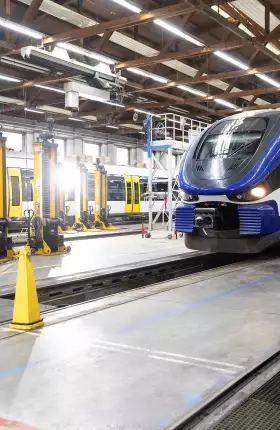
Article
November 7, 2023
Rail operators can combat rising costs by leveraging their existing data for maintenance planning and execution or by adopting advanced technologies to produce new data sources.
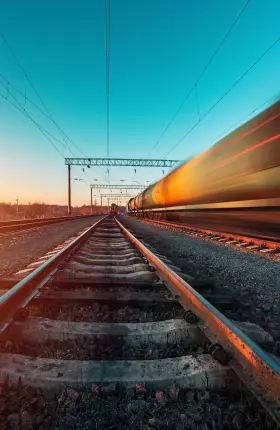
Slideshow
February 8, 2024
Reducing operating costs is critical for achieving performance objectives, but rail executives must select the right levers to tackle their distinctive challenges.
Shipping Industry

Article
June 11, 2025
A second major survey and report by GCMD and BCG closely tracks the shipping industry’s progress toward net zero. This extract outlines the new report’s key findings.
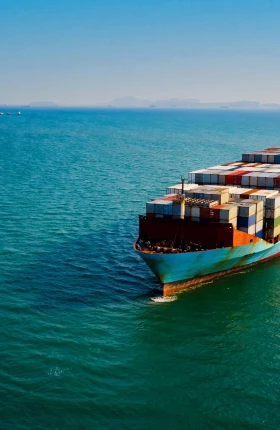
Article
December 10, 2024
Maritime transportation could become a key part of the carbon capture value chain, especially in Asia-Pacific.
Video
Navigating Maritime Decarbonization
Bo Cerup-Simonsen, CEO of the Mærsk Mc-Kinney Møller Center for Zero Carbon Shipping, joins BCG’s Peter Jameson to discuss the industry’s shift toward collaboration and decarbonization.

Article
September 24, 2021
As you craft a decarbonization strategy—for today and tomorrow—here are seven crucial areas to consider.
Postal and Parcel Industry
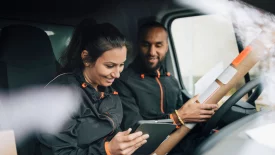
Article
June 24, 2021
As e-commerce explodes, the external costs of home package delivery grow in lockstep. The solution: a delivery ecosystem that meets the needs of consumers, delivery companies, and retailers alike.

Postal and Parcel Industry
April 4, 2020
The COVID-19 crisis will act as a catalyst for a number of trends that will profoundly reshape the industry in the coming months.
Logistics and Freight Industry
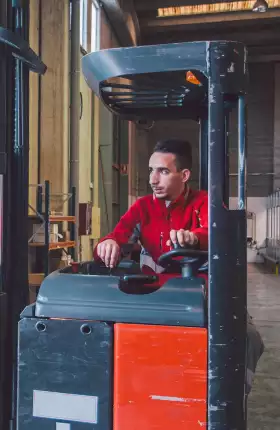
Slideshow
June 10, 2024
Supply and demand are more balanced, but disruptions across the Continent—and around the world—mean that road-freight customers must adapt to a far more volatile market.
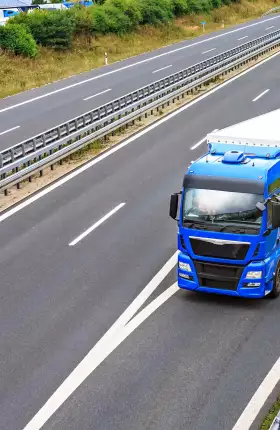
Slideshow
October 12, 2023
Despite having a positive effect on the medium- and heavy-duty truck sector overall, the clean-energy transition will disrupt business models and employment, requiring suppliers, OEMs, and other players to prepare for change now.

Article
October 24, 2022
BCG and Kodiak Robotics have developed an interactive tool to identify routes that can help optimize the expansion—and benefits—of autonomous trucking.
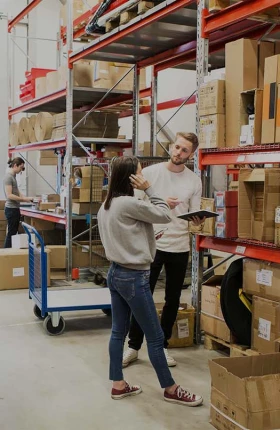
Article
December 7, 2023
Two decades of data show how leading distributors deliver strong shareholder returns. Distributors must generate local and national scale and fight to defend and grow their market share.
Explore more
Industry
Industry





